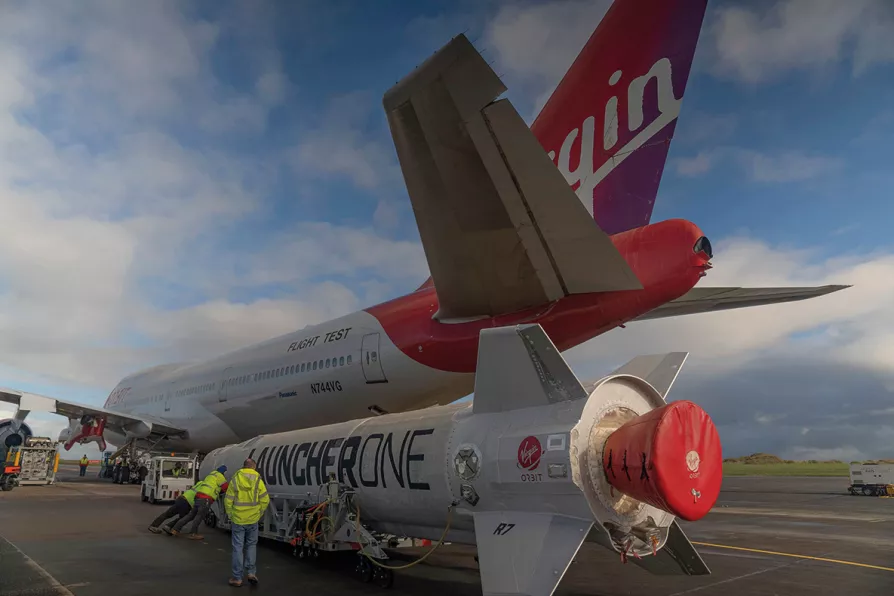As tens of thousands return to the streets for the first national Palestine march of 2026, this movement refuses to be sidelined or silenced, says PETER LEARY

 MISSION FAILED: A repurposed Virgin Atlantic Boeing 747 carrying a rocket, seen here parked at Spaceport Cornwall, was unsuccessful in its attempt to deliver several small satellites
into space last week
MISSION FAILED: A repurposed Virgin Atlantic Boeing 747 carrying a rocket, seen here parked at Spaceport Cornwall, was unsuccessful in its attempt to deliver several small satellites
into space last week
LAST week, the anticipated launch of the first satellites from Spaceport Cornwall failed. The launch technology involves a modified Boeing 747 plane with a launcher rocket fired from its wing at 35,000 feet.
The rocket successfully ignited and left the wing over the Atlantic Ocean south-west of Ireland, but an “anomaly” with the second-stage engine meant the satellites were lost with the rocket.
The launch had been heavily anticipated as a key moment for the British space industry. Though it may be entertaining to enjoy the public failure of a company associated with Richard Branson, that shouldn’t obscure the fact that this attempt was a part of a dramatic shift currently under way in space transport.

One of the major criticisms of China’s breakneck development in recent decades has been the impact on nature — returning after 15 years away, BEN CHACKO assessed whether the government’s recent turn to environmentalism has yielded results

PAWEL WARGAN juxtaposes the thriving industrial centre Jiayuguan in China, with the prevailing images of decaying East European great industrial cities











